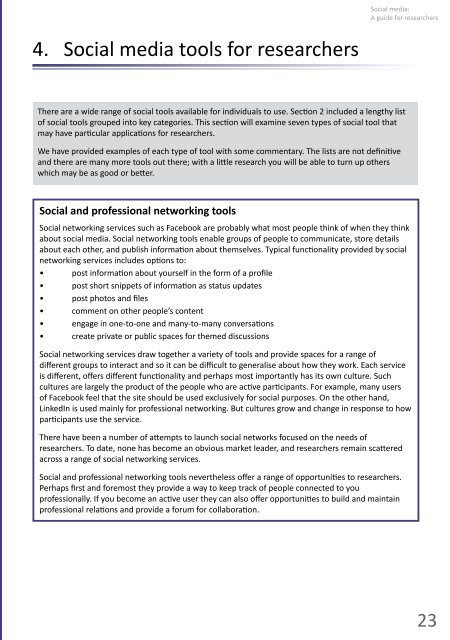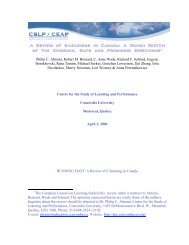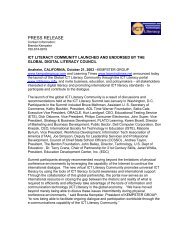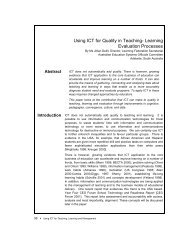Social Media - A guide for researchers - ICT Digital Literacy
Social Media - A guide for researchers - ICT Digital Literacy
Social Media - A guide for researchers - ICT Digital Literacy
You also want an ePaper? Increase the reach of your titles
YUMPU automatically turns print PDFs into web optimized ePapers that Google loves.
<strong>Social</strong> media:<br />
A <strong>guide</strong> <strong>for</strong> <strong>researchers</strong><br />
4. <strong>Social</strong> media tools <strong>for</strong> <strong>researchers</strong><br />
There are a wide range of social tools available <strong>for</strong> individuals to use. Section 2 included a lengthy list<br />
of social tools grouped into key categories. This section will examine seven types of social tool that<br />
may have particular applications <strong>for</strong> <strong>researchers</strong>.<br />
We have provided examples of each type of tool with some commentary. The lists are not definitive<br />
and there are many more tools out there; with a little research you will be able to turn up others<br />
which may be as good or better.<br />
<strong>Social</strong> and professional networking tools<br />
<strong>Social</strong> networking services such as Facebook are probably what most people think of when they think<br />
about social media. <strong>Social</strong> networking tools enable groups of people to communicate, store details<br />
about each other, and publish in<strong>for</strong>mation about themselves. Typical functionality provided by social<br />
networking services includes options to:<br />
• post in<strong>for</strong>mation about yourself in the <strong>for</strong>m of a profile<br />
• post short snippets of in<strong>for</strong>mation as status updates<br />
• post photos and files<br />
• comment on other people’s content<br />
• engage in one-to-one and many-to-many conversations<br />
• create private or public spaces <strong>for</strong> themed discussions<br />
<strong>Social</strong> networking services draw together a variety of tools and provide spaces <strong>for</strong> a range of<br />
different groups to interact and so it can be difficult to generalise about how they work. Each service<br />
is different, offers different functionality and perhaps most importantly has its own culture. Such<br />
cultures are largely the product of the people who are active participants. For example, many users<br />
of Facebook feel that the site should be used exclusively <strong>for</strong> social purposes. On the other hand,<br />
LinkedIn is used mainly <strong>for</strong> professional networking. But cultures grow and change in response to how<br />
participants use the service.<br />
There have been a number of attempts to launch social networks focused on the needs of<br />
<strong>researchers</strong>. To date, none has become an obvious market leader, and <strong>researchers</strong> remain scattered<br />
across a range of social networking services.<br />
<strong>Social</strong> and professional networking tools nevertheless offer a range of opportunities to <strong>researchers</strong>.<br />
Perhaps first and <strong>for</strong>emost they provide a way to keep track of people connected to you<br />
professionally. If you become an active user they can also offer opportunities to build and maintain<br />
professional relations and provide a <strong>for</strong>um <strong>for</strong> collaboration.<br />
23
















